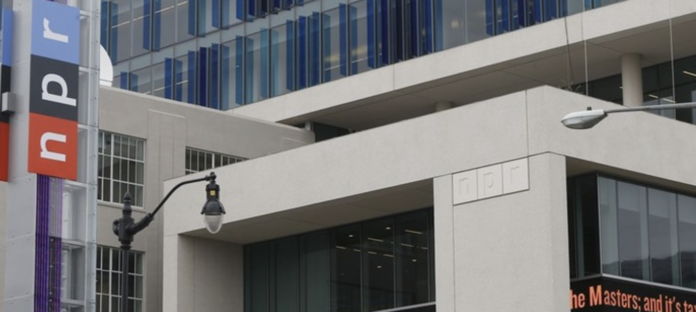National Public Radio, also known as NPR, announced layoffs last week to the tunes of approximately 100 employees (10 percent) and the cancellation of four podcasts. Although a fifth podcast was not cut, its production and airtime will be greatly reduced.
Some positions were also eliminated, and other employees posted on social media periodically that they were leaving.
“We are literally fighting for the future of NPR right now by restructuring our costs structure. “It’s so important,” John Lansing, chief executive officer of NPR, stated during an interview about the decision. “It’s existential.”
It is understandable that conservatives, who have had long-standing complaints about NPR’s hard-left biases and how they are routinely reflected by their partly-taxpayer-funded “reporting”, would disagree on the “importance of salvaging the public broadcaster, which was launched in 1970, three year after the creation of the Corporation for Public Broadcasting. (CPB)
However, the network’s situation appears to have worsened since the announcement of layoffs. Staffers are reportedly waking up during struggle sessions Zoom calls or employee meetings and worrying more about “issues” such as the percentage of minorities being fired than how NPR can attract viewers and advertisers. This is obviously how future layoffs may be avoided.
Employees asked for more information about the percentage of employees from different races or identities who were laid off and not just the rest of the employees. They wanted more information on their audiences and the plans for the hiring of a chief content officer. Also, they wanted to see more details about the process behind the layoffs.
The already stressful environment heated up during a conversation between Lansing, the CEO, and a Black employee. The employee expressed concern that podcasts weren’t receiving marketing support, and asked how shows could reach more people without it. The employee also asked for more accountability by listing the names of executives and repeating statements made in the past.
The person then asked Lansing how NPR would make diversity work more important. Lansing responded that all NPR programming should be relevant for all Americans — an NPR mission.
He then replied that he needed to “turn down rhetoric” and not name executives in an all-hands meeting with hundreds of people.
Bloomberg News reports that this statement was made again during the meeting.
Fauxfended employees immediately called Zoom and labeled Lansing’s reply “racist” as well as out-of-line. Another staff member shared a link to an NPR segment entitled “When Civility is Used As A Cudgel against People Of Color”.
NPR attributes its financial difficulties to slowdowns in advertising in the Biden economy. This has been felt on all media platforms.
However, I wonder if NPR’s problems could also be due to a sharp decline in viewership and growing distrust of the media in general. Conservatives refer to it as “go woke, go broke.”
After all, news outlets are only able to insult an individual’s intelligence so much before viewers and readers – even critics who still watch and read them occasionally – have enough. Tune in elsewhere.
NPR’s viewership plummeted during the pandemic and it doesn’t seem to have recovered.
NPR might be better off not obsessing about anti-American programming and wakingness, but taking a hard look at themselves in the mirror. They might finally see the commonality of the rest of us and realize the kind of changes that they should make in their programming. This could include the “deprogramming”, of the remaining staff members.




